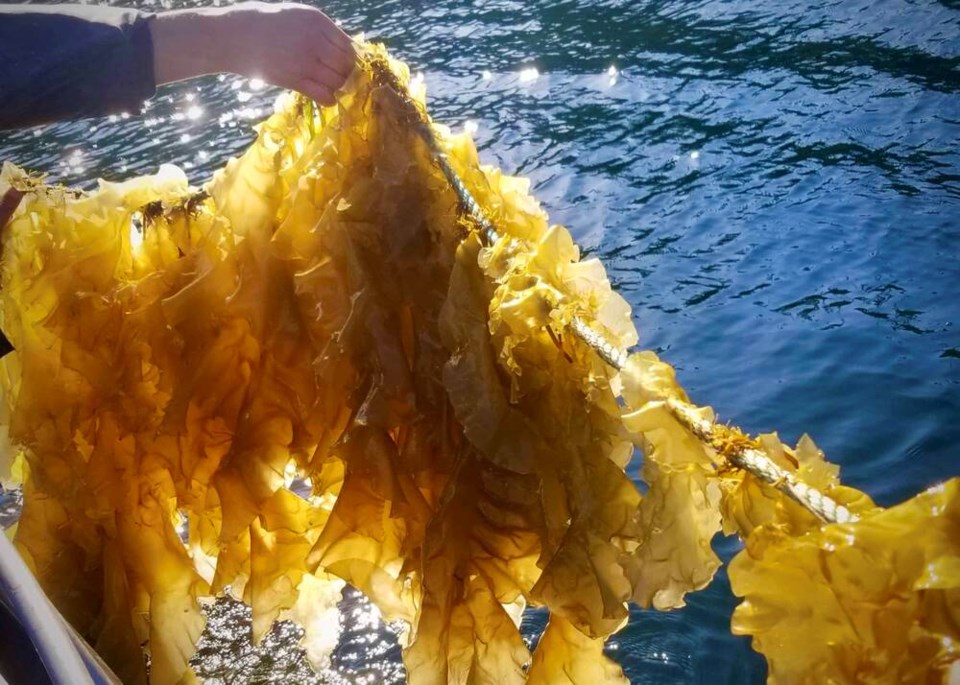Sidney-based Cascadia Seaweed has been given $4.3 million by the federal government to establish a 100-hectare seaweed farm and agri-feed processing facility close to Prince Rupert.
Cascadia, which combines cultivation expertise, First Nations partnerships and brand development, currently has about 26 hectares of seaweed under cultivation in waters off the province’s coast.
“At Cascadia Seaweed we cultivate seaweed on low-impact farms in the ocean providing ecosystem services such as carbon capture, oxygen production and habitat. Then we harvest that crop to produce climate-positive products for a more resilient food system,” said company chair Bill Collins.
Collins said they will partner with First Nations to build the 100-hectare ocean farm and an agri-feed processing facility.
“It’s sustainable aquaculture empowering regenerative agriculture, addressing Canada’s net-zero targets while creating jobs, economic growth and long-term prosperity,” he said.
Cascadia embarked this year on a process to identify valuable compounds in seaweed to be used as cattle feed to improve animal health and reduce harmful methane emissions. The lab tests have been wrapped up and the company will now engage in testing with live animals.
Sustainable Development Technology Canada, which provided the $4.3 million over the next three years, said companies like Cascadia have ideas to help solve some of our planet’s most pressing environmental problem.
“With our support and funding at all stages of development, we are helping companies reach commercialization faster so that they can tap into the strong global demand for sustainable solutions across every sector of the economy,” said Leah Lawrence, chief executive of SDTC.
Three year-old Cascadia, which recently landed a $1.8-million grant from the B.C. Salmon Restoration and Innovation Fund to be used to study the effect of kelp beds on juvenile salmon, intends to establish 400 hectares of cultivated kelp beds.
>>> To comment on this article, write a letter to the editor: [email protected]



